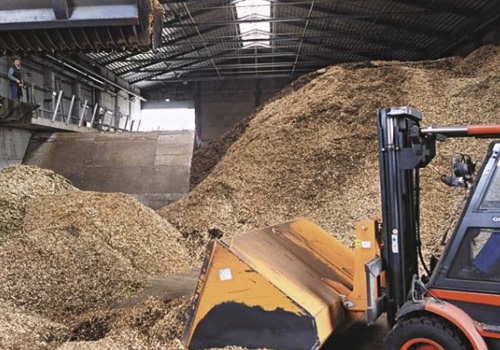RONDA 2.0

Round 2.0: 500 MW could be tendered for dry biomass projects
From the private sector, they assure that if the Ministry of Energy and Mining establishes \"adequate conditions\" in the imminent certification of renewable energies, at least fifteen large-scale projects will be presented, viable both from a technical and economic point of view.
The Undersecretary of Renewable Energy of the Ministry of Energy and Mining of the Nation, Sebastián Kind, already announced that in August a new tender for renewable energies will begin to operate, in which all the technologies - wind, solar, mini-hydroelectric, biomass and biogas-, discarding the possibility that was considered at the outset that bioenergies would compete separately.
Now, one of the most important unknowns is how much power will be tendered, given that there is some saturation in the interconnection points. And, as a second part of that question, the following arises: of that total, how much will be assigned to each technology.
This last question is of relevance for the developers of projects of the different clean energies, on the one hand, because it is expected a wide participation of wind and solar projects after the success of Rounds 1 and 1.5 in terms of convocation, on the other, because bioenergies expect more \"understanding\" from the Ministry of Energy in this new tender.
Both the biomass sector and the biogas sector trust that the Work Tables that each sector carried out together with government officials and technicians of the area will have positive results in Round 2.0 and will not repeat what happened in the last tender where they presented just 45 MW of biomass and 9 of biogas, without even reaching the quota tendered.
Read also: \"For competitiveness, they assure that the agroindustrial sector bets on the use of biomass\"
If so, the competition will be difficult. According to calculations of Juan Benassi, Managing Partner in the firm AGVE, if the Ministry of Energy and Mining dictates \"adequate conditions\" for the development of dry biomass projects -forestry / agroindustrial-, there is the possibility that more than a fortnight of large enterprises \"with economic and technical capacity\" for around 500 MW.
To do this, the national government must take into account a number of aspects that the private sector has already laid down in a letter sent to the Energy portfolio weeks ago.
In the letter, one of the issues flagged by entrepreneurs is the need for projects to be differentiated by power, since there is a marked difference in the costs of unit production of energy. The scales that were defined are: projects under 6 MW; above 6 MW and up to 20 MW; and for more than 20 MW.
Read also: \"Important meeting of the Government with biomass entrepreneurs to analyze measures\"
In that sense, Benassi highlights the importance of small projects. Although it recognizes that they are more expensive, since the price per MWh is higher than one of larger scale, they are convenient for the State because, in addition to encouraging regional economies, they are important to stabilize critical lines that require investments not planned in the short term.
Consulted by subject of prices per MWh, the expert assures that a large-scale dry biomass project is cheaper than many thermoelectric plants, but with the difference that they generate clean energy. But he stresses that as the government decides to develop the sector, costs will fall, as happened in other countries of the world.
